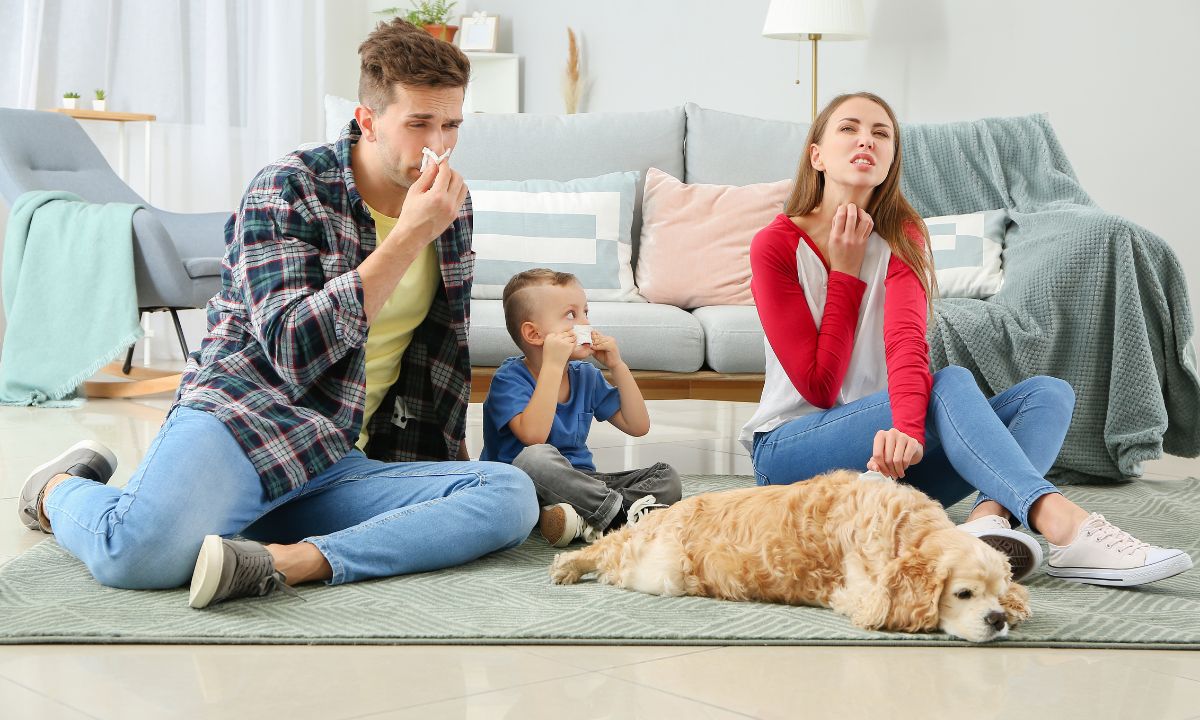 Living with allergies can be tough, especially when your home, a place meant for comfort, becomes a source of irritation. Allergens like dust mites, pollen, pet dander, and mold can linger in your living spaces, worsening symptoms for those with sensitivities. Fortunately, there are effective strategies to reduce allergens and create a healthier home environment. Here are some tips to help you get started:
Living with allergies can be tough, especially when your home, a place meant for comfort, becomes a source of irritation. Allergens like dust mites, pollen, pet dander, and mold can linger in your living spaces, worsening symptoms for those with sensitivities. Fortunately, there are effective strategies to reduce allergens and create a healthier home environment. Here are some tips to help you get started:
1. Keep Your Home Clean A clean home is key to keeping allergens at bay. Vacuum your carpets and rugs frequently using a vacuum cleaner equipped with a HEPA filter, which traps tiny particles like dust and pollen. Dust with a damp cloth to prevent allergens from being pushed back into the air. Additionally, wash bedding in hot water weekly to eliminate dust mites.
2. Manage Humidity Levels Dust mites and mold thrive in humid environments. Keep your home’s humidity below 50% by using a dehumidifier, especially in damp areas like basements and bathrooms. Fix leaks promptly to prevent mold growth and keep your living space dry and healthy.
3. Use Allergen-Proof Bedding Allergen-proof covers on pillows, mattresses, and box springs can prevent dust mites from infiltrating your bedding. Consider hypoallergenic bedding to reduce allergic reactions, providing a comfortable and restful night’s sleep.
4. Limit Indoor Plants While plants can beautify your home, they can also introduce mold and pollen. Opt for low-pollen plants like succulents or ferns, and keep them dust-free. If you suffer from allergies, reducing the number of indoor plants can help.
5. Clean Air Ducts and HVAC Filters Regularly cleaning your air ducts and changing HVAC filters is essential for maintaining good air quality. Use high-efficiency HEPA filters, which can trap dust, allergens, and pet dander. Consider having professionals clean your air ducts to ensure a thorough job.
6. Control Pet Allergens Pets bring joy but also allergens. Regularly bathe and groom your pets to minimize dander, and create “no pet” zones in areas like bedrooms. Wash your pet’s bedding often to prevent allergens from accumulating.
7. Invest in Air Purifiers A HEPA air purifier can significantly reduce airborne allergens like dust, pollen, and mold spores. Place purifiers in frequently used areas such as the living room and bedroom for maximum effectiveness.
8. Clean Soft Furnishings Upholstered furniture, curtains, and carpets can harbor allergens. Regularly clean them using a vacuum with a brush attachment, and launder curtains as needed. Consider using washable area rugs for easy maintenance.
9. Adopt a Shoe-Free Policy Shoes can track in outdoor allergens like dirt, pollen, and mold. By adopting a shoe-free policy and placing doormats at entrances, you can limit the spread of allergens inside your home.
10. Control Outdoor Allergens During peak pollen seasons, keep windows and doors closed to prevent outdoor allergens from entering. Use air purifiers and filters to clean indoor air and create a safer environment.
By following these tips, you can reduce allergens in your home and enjoy a healthier, more comfortable living space. Consistency is key, but the reward of fewer allergy symptoms is well worth the effort.